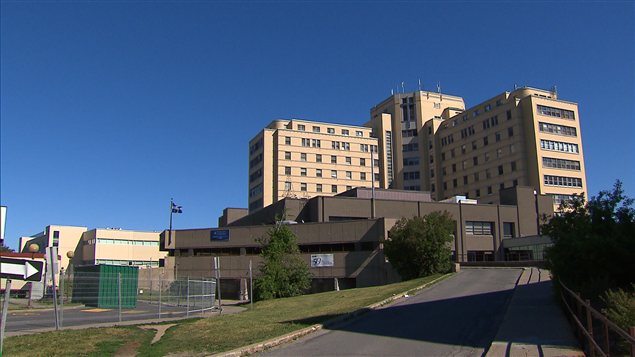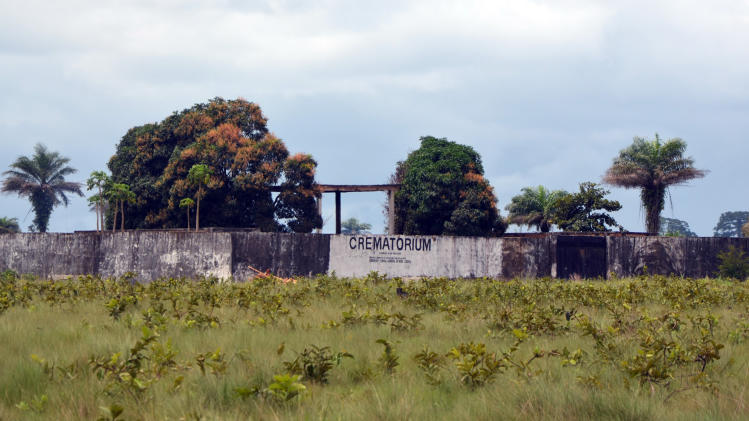Monday, August 25, 2014
Ebola outbreak: Why Liberia's quarantine in West Point slum will fail

Last week, military personnel set up a barricade around the West Point
slum in Liberia, but medical experts say there's no proof the medieval
measure is effective. (Abbas Dulleh/The Associated Press)
Medical experts say that mass quarantine is rarely if ever effective in
stemming the spread of a contagion like Ebola, and the move by Liberia
to cordon off a sprawling slum is likely to do more harm than good.
"It's a measure that basically goes back to the Middle Ages. It's a
reflection really of ignorance and panic," said Dr. Richard Schabas,
formerly chief medical officer for Ontario and now in that role in
Hastings and Prince Edward counties.
"Mass quarantine of this kind really has no place at all in disease control."
The concept of quarantine "has an intuitive appeal to a layperson, and
leaders of these countries are lay people," adds Dr. William Schaffner, a
Vanderbilt University professor of preventive medicine.
"But the practical aspects of implementation are very substantial and
there aren't any data that would tell you securely that this works."
What's more, he suggests, the measure will also likely foment further public mistrust of the government.
Liberia is already struggling with fallout over its move to try to
contain the spread of Ebola with a barricade around the West Point slum,
located near the capital city of Monrovia.
Clashes broke out in West Point after Liberia's military set up
the barricade late Tuesday using scrap wood and barbed wire. Officials
patrolled the expansive coastline to prevent the more than 70,000
residents from fleeing in canoes.
Several residents were shot during the unrest, including a 15-year-old
boy who later died. Food prices in the crowded peninsula have
skyrocketed.
Liberia — one of the poorest countries in the world and long wracked by
civil war — has been the hardest hit of the four West African nations
suffering under the five-month-long Ebola epidemic. As of Friday, the
country had incurred 624 of the 1,427 deaths.
Desperate to control the spreading epidemic, the government has
quarantined both remote villages in the northern Lofa County as well as
the West Point slum, creating what some humanitarian workers dubbed
"plague villages."
Sierra Leone and Guinea have also set up quarantine zones in areas
severely affected by Ebola to try to reduce the chance of people
spreading the virus outside their borders.
Quarantine during SARS 'damaging'
Dr. Schabas stresses that isolation — the act of segregating a person
showing symptoms of the disease — is key to containing infections.
But he argues that there is no scientific proof that a quarantine
— separating an entire category of people on the assumption they may be
incubating the disease — is effective in zoonotic diseases (that can be
transmitted between species) like Ebola.

Ebola can only be transmitted when a patient is showing symptoms of the
disease. That's why some say patient isolation is a better way to
control the spread of the disease. (Michael Duff/Associated Press)
As the World Health Organization has noted, a person infected with
Ebola can only spread the virus once he or she starts to show symptoms.
Transmission comes from contact with the bodily fluids of an infected
person, whether dead or alive, or from animals.
It's believed that fruit bats are the carriers of Ebola, and that
residents of the region may have caught the disease while handling the
animals to cook the bush meat.
Schabas notes that a mass quarantine was tried during the 2003 outbreak
of SARS in Toronto, with about 30,000 people ordered to stay home. But
the measure failed.
"It involved a huge disruption and huge investment of public health
resources," said Dr. Schabas. "It created the perception that SARS was
more dangerous and more widespread than it was. It triggered things like
travel advisories, which were economically damaging."
Dr. Schabas argues that for a quarantine to be useful, it has to make
sure people comply with quarantine conditions, and the infectious
disease must be transmissible when patients don't yet show symptoms.
Neither SARS nor Ebola is transmissible when a patient is asymptomatic.
Medieval measure
Cordoning off a community to protect it or the outside world from the
spread of an infectious disease is a Medieval measure dating back to the
Black Death pandemic that killed up to 200 million people in the 14th
century.
There have been other attempts to close off towns and villages in
following centuries, including a rare instance in the British village of
Eyam in the 1660s when villagers voted to voluntarily quarantine
themselves.
They circled the town with piles of stones to prevent the spread of the
plague beyond its border. Three-quarters of the 350 townspeople died.
But, as Joseph Byrne, a historian at Nashville's Belmont University,
notes "most of the cordoning off [in history] occurred before germs were
understood to be the cause."
"There were other more effective ways of dealing with disease from the
late-1800s on, rather than simply saying, 'Well, let's seal off an
area'," said Byrne. "I think that's why there aren't many contemporary
attempts to do that."
There is also little research pointing to the effectiveness of
quarantines, and many questions about not only infringing
on individuals' human rights but physically harming them and spreading
mistrust in the authorities.
Keeping West Point — a densely packed stretch of land largely bordered
by the Atlantic Ocean — secure over a lengthy period of time, perhaps
weeks, will pose a major challenge.
Among them will be trying to stop townspeople from trying to bribe their way out.
As well, the 24-hour security will stretch government coffers and those
inside the barricades may suffer. Some work outside the township and so
will lose income while food costs are soaring and general frustration is
rising.
Distrust and misunderstanding of the disease is already hindering
attempts to get the outbreak under control. Families are hiding
relatives suspected of being infected, fearful of the stigma attached to
Ebola.
Some believe the virus is a hoax, and many infections are happening because family members touch bodies during funeral rites.
Dr. Keith Martin, a former Liberal MP who now heads the Washington-based
Consortium of Universities for Global Health, says isolating a small
group of unhealthy people with a large group of healthy residents can
cause more harm than good if they don't get access to food, water and
medical care — all of which are in increasingly short supply as groups
like Doctors Without Borders have pointed out.
"Quarantining a large area like West Point in the way that it's done can
contribute to the death rate because you're essentially isolating
healthy and unhealthy people, and not implementing what's more important
— good public health measures," said Martin.
'Biggest bang for buck'
The World Health Organization said that such "extraordinary" measures as
quarantine should only be taken when "considered necessary," but
countries must take human rights into account if they resort to
quarantines and give residents the necessities of life.

Liberia's the hardest hit West African country, accounting for more than
40 per cent of the deaths from Ebola. (Luc Gnago/Reuters)
The UN World Food Program is planning to distribute food to an estimated
one million people living in quarantine zones in West Africa. But
residents have already complained that there's not sufficient food or
water, creating the potential for a humanitarian crisis.
Ultimately, the WHO stresses that the primary way to control a disease
is "quality clinical care." Though it is advising countries on the
health crisis, WHO notes "national authorities take decisions based on
their assessment of local conditions."
Dr. Schaffner notes that the oil-rich nation of Nigeria has been
successful in containing Ebola by using "standard public health
practices." There, medical officials have focused on isolating cases of
suspected Ebola, then tracking down and monitoring their contacts with
daily temperature checks for the disease.
Though clean water, food, education and good medical care give the
"biggest bang for the buck," it's those basic necessities that the
poorest countries lack, says Dr. Martin.
That's led them to desperately try to stem the contagion through other means.
"In Liberia, at the present time, they have more soldiers than they have
doctors," observes Dr. Schaffner. "So they're using the resources that
they have in the hopes that it will do some good."











